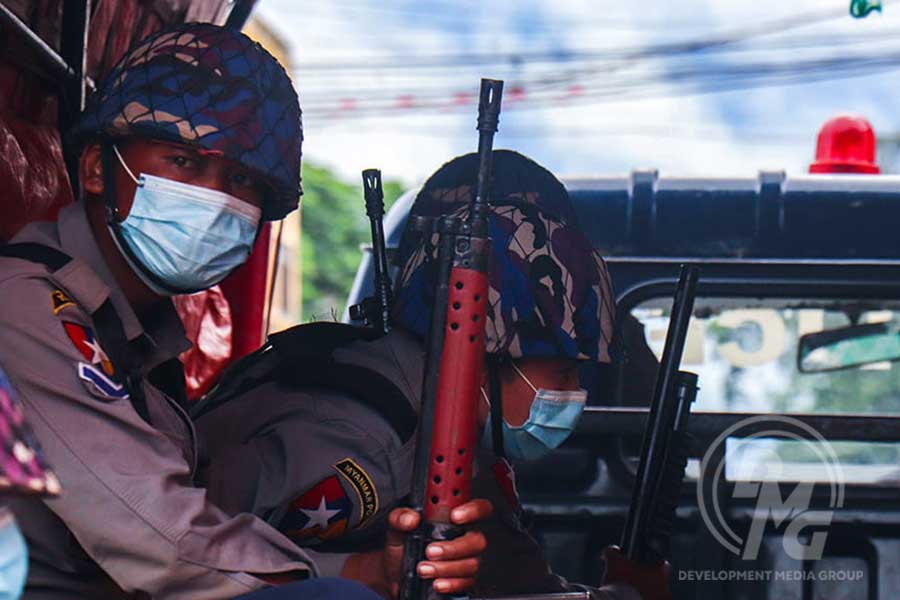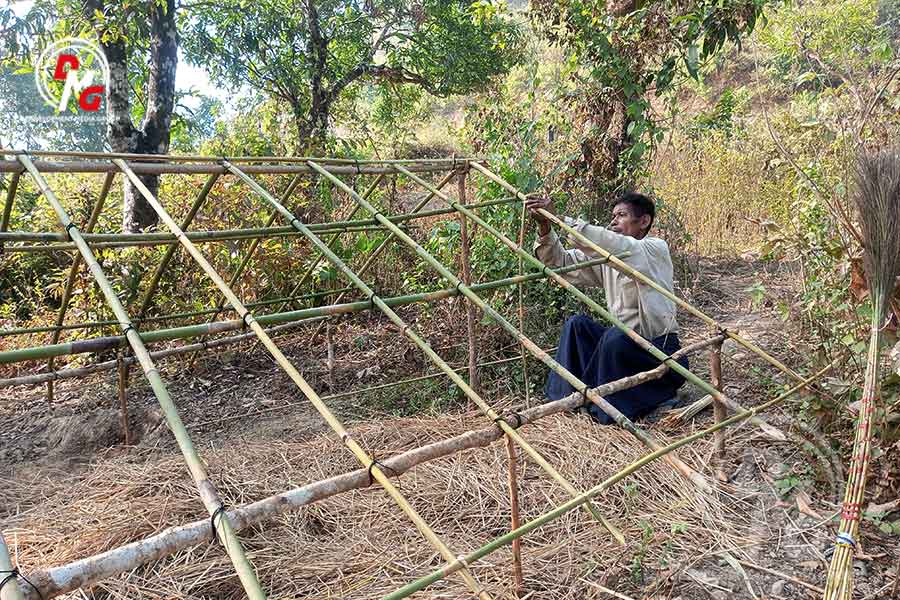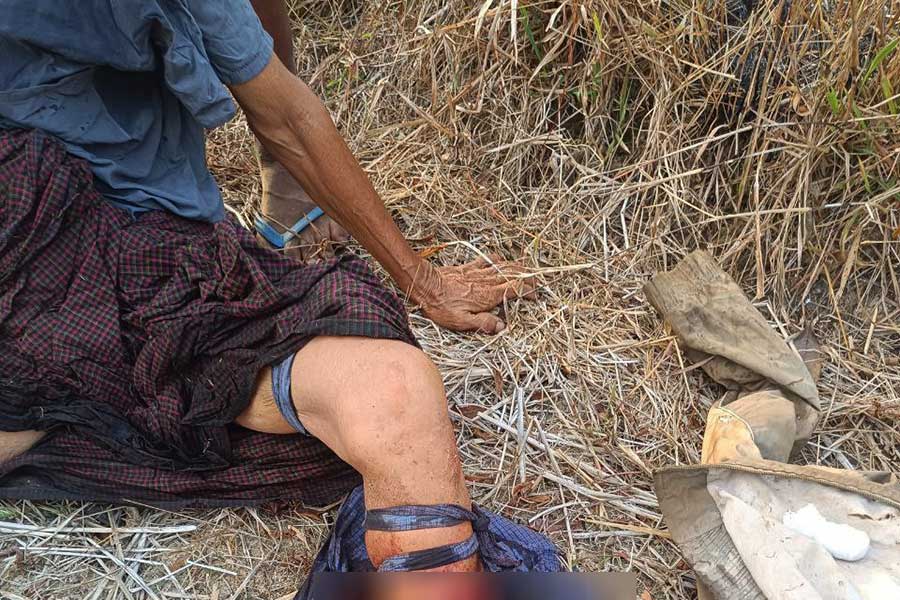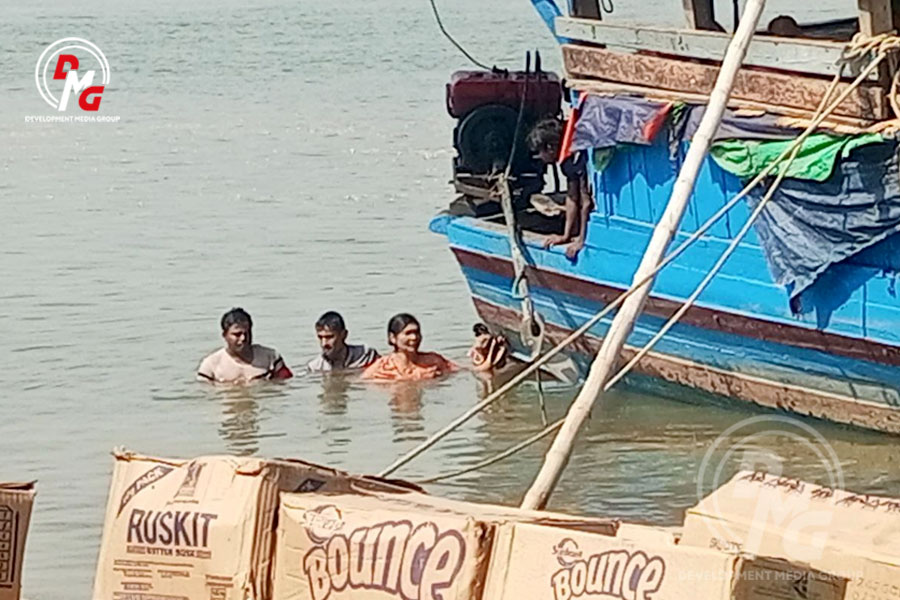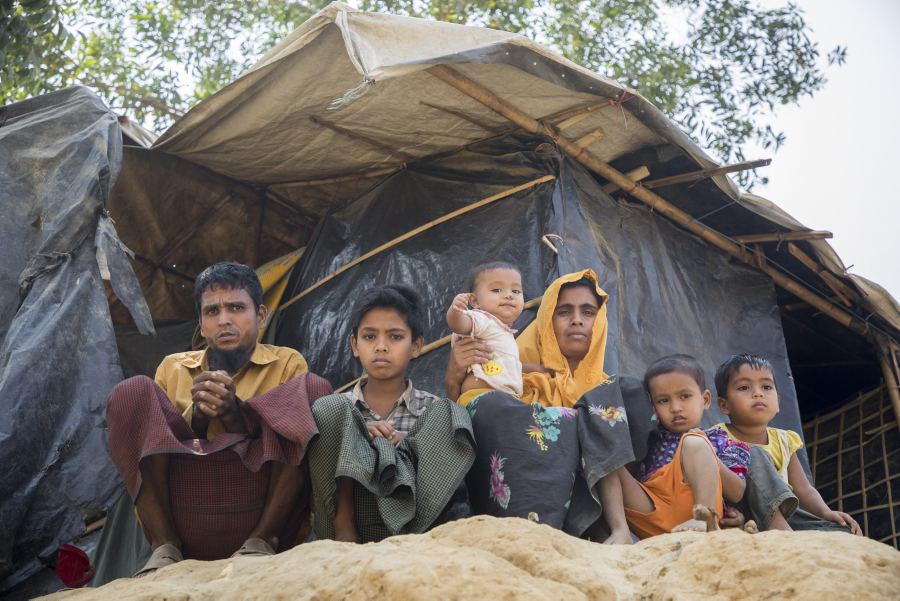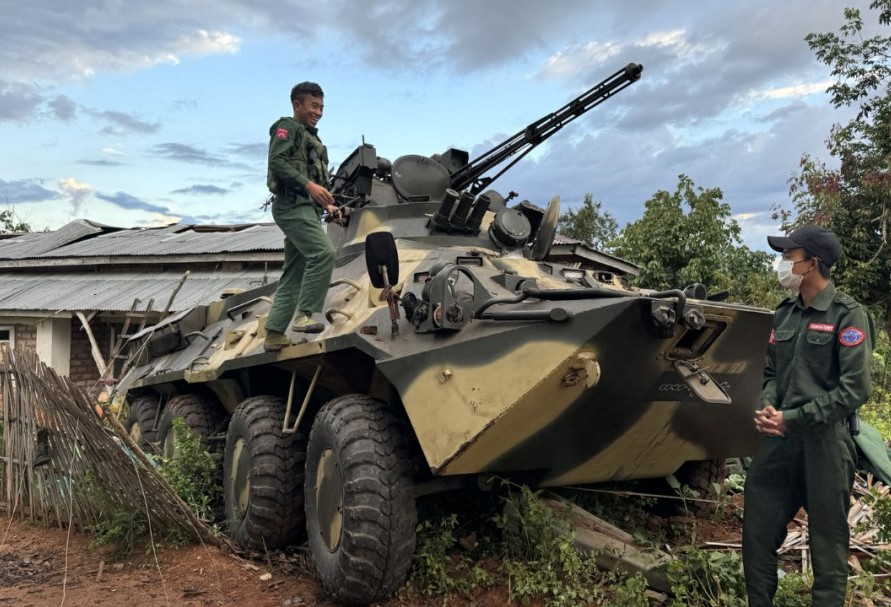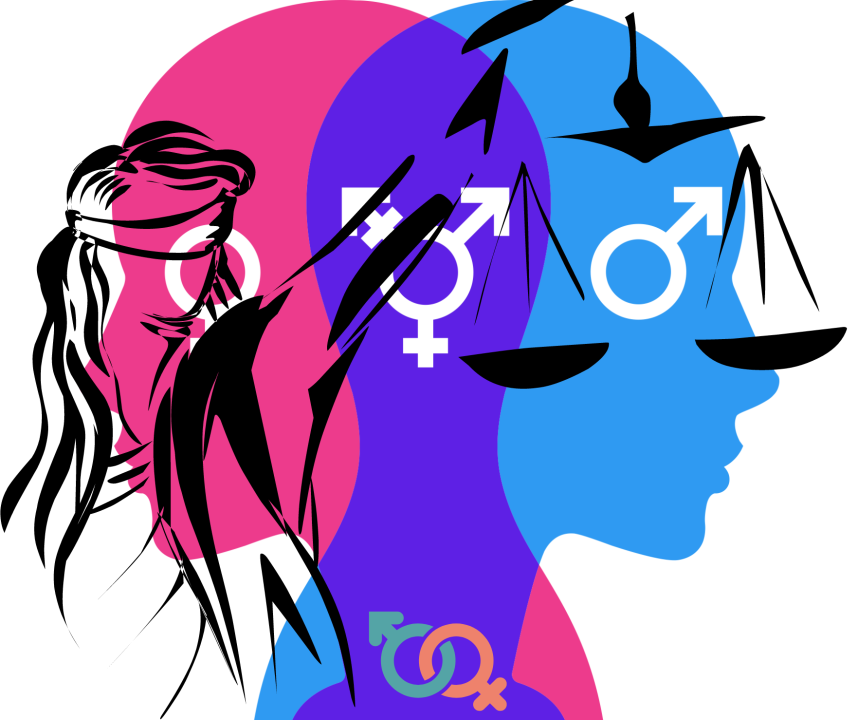- Thousands of houses torched, bulldozed by junta in Buthidaung
- Driver killed, two injured as junta soldiers open fire on bus in Thandwe Twsp
- Regime shelling kills two civilians, injures another in two Arakan State townships
- Septuagenarian loses leg in landmine explosion in Kyaukphyu Twsp
- Muslim communities accuse regime of stoking racial strife
People with disabilities deprived of rights under Myanmar law: CSOs
Civil society organisations (CSOs) are calling for greater protections and livelihood support for people with disabilities in Myanmar, whom advocates say have yet to fully benefit from legislation passed years ago and intended to promote the wellbeing of the disabled.
26 Apr 2022

DMG Newsroom
26 April 2022, Sittwe
Civil society organisations (CSOs) are calling for greater protections and livelihood support for people with disabilities in Myanmar, whom advocates say have yet to fully benefit from legislation passed years ago and intended to promote the wellbeing of the disabled.
Under the Rights of Persons with Disabilities Law, people with disabilities are entitled to the same rights as everyone else politically, economically, as well as in education, public affairs and various other aspects of life. Despite these guarantees, many people with disabilities remain deprived of their rights under the law, the CSOs point out.
And while the rights of people with disabilities are being denied nationwide, in Arakan State, more than two years of military conflict and its aftermath has increased the population of those with war wounds that present everyday challenges and barriers to societal participation.
Sixteen-year-old Maung Oo Ba Maung, an eighth grade student in Ahtet Myet Lay village, Ponnagyun Township, had his right leg amputated in a landmine explosion in July 2021 and has faced numerous difficulties ever since.
“People are ridiculed for being disabled. My friends are not as friendly as they used to be, so I am left alone. I became discouraged when my friends treated me differently,” he said. “When a person loses a limb, all opportunities are reduced. In any case, I have to keep my mind strong.”
According to the Rakhine Ethnics Congress, dozens of villagers have been killed and more than 140 others have been injured by landmines and explosive remnants of war in Arakan State since the end of 2018, when the two-year conflict between the Myanmar military and Arakan Army began.
Ma Khin Myint Zaw, director of the women’s advocacy group Women Generation, said the government remains weak in providing support for people with disabilities.
“If people become persons with disabilities, their education, wages and family members who rely on them are also affected,” she said, adding that the government should promote their protection under the Rights of Persons with Disabilities Law, including through non-academic and non-vocational education.
Myanmar became a signatory to the UN Convention on the Rights of Persons with Disabilities in 2011. The Rights of Persons with Disabilities Law was passed in 2015, and its bylaws were enacted in 2017.
Despite these legislative developments, no effective action has been taken, according to disability rights activists.
U Hla Myint, chairman of the Arakan State Association for Persons with Disabilities, said much work remains to be done, with progress uneven and an urban-rural divide apparent.
“People with disabilities need to develop the skills to work alongside people in all areas of social, economic and public affairs. The opportunity to employ people with disabilities — at least five people per 100 people in appropriate places — is in practice in cities, but in our regions and states it is not yet available at all,” he said.
He continued that rehabilitation services, such as vocational training for the disabled, should be further developed and that various sectors of the economy needed to become more disabilities-friendly.
There are nearly 6 million people with disabilities in Myanmar, according to 2019 figures from the Ministry of Labour, Immigration and Population. There are 505,503 people with disabilities — of whom 207,012 are vision-impaired and 110,264 are hard of hearing — in Arakan State, according to the ministry’s figures.

